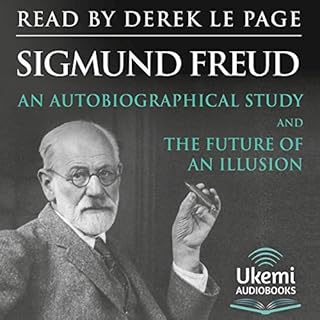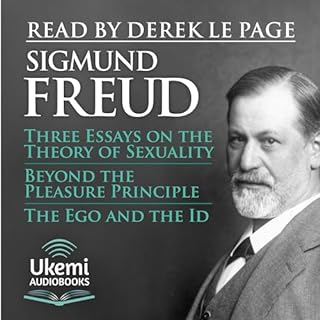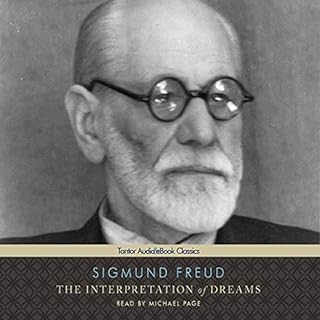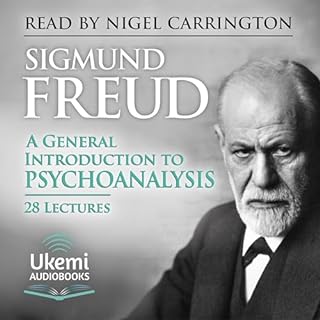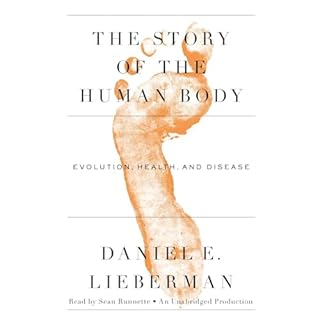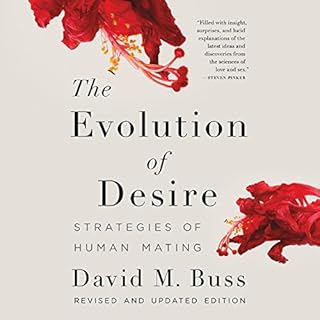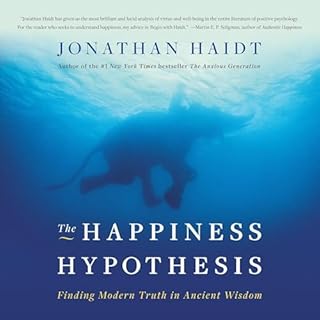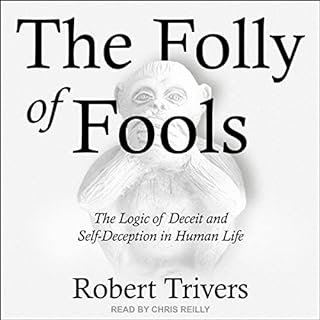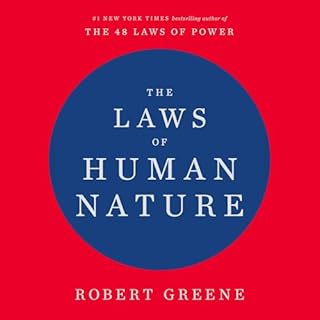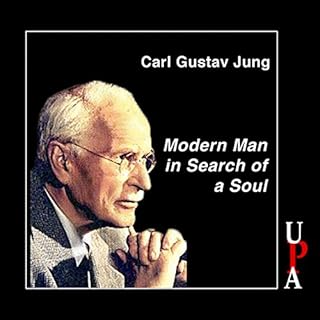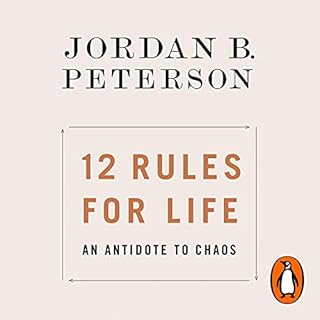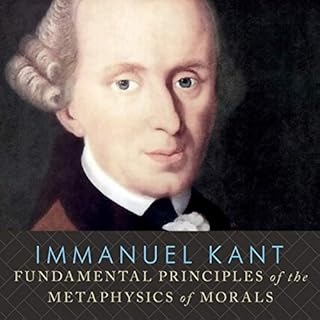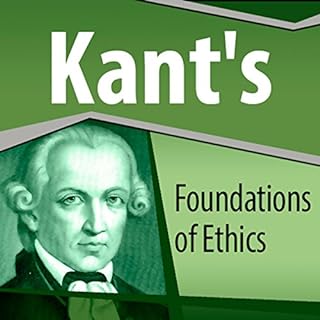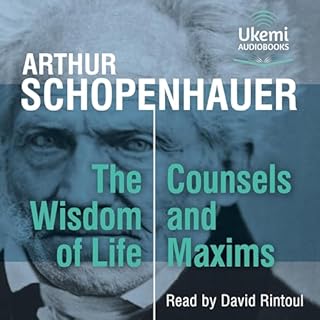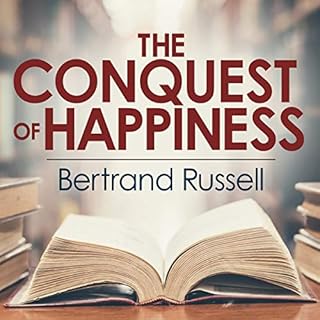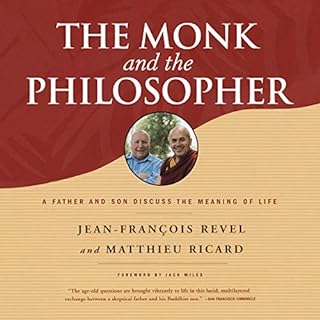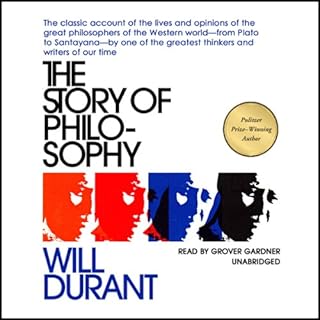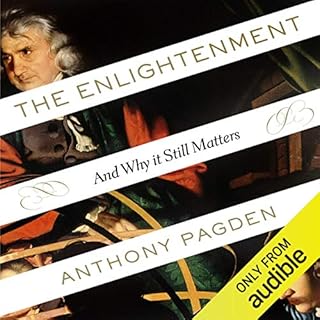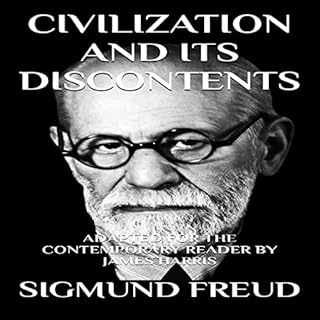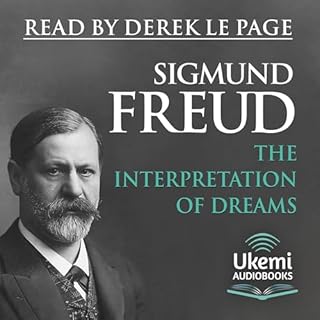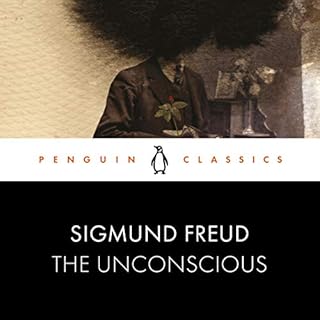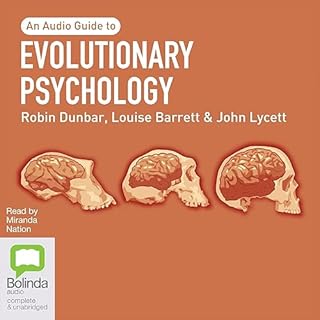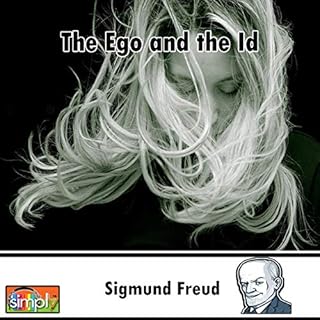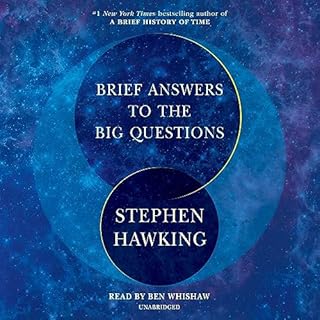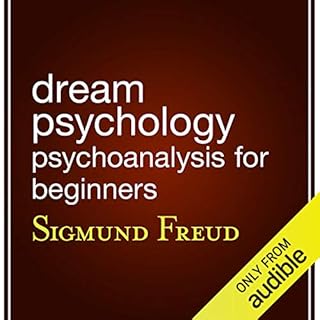
Civilization and Its Discontents
Failed to add items
Add to Cart failed.
Add to Wish List failed.
Remove from wishlist failed.
Adding to library failed
Follow podcast failed
Unfollow podcast failed
$0.99/mo first 3 months
 Prime members: New to Audible?
Prime members: New to Audible?Get 2 free audiobooks during trial.
Buy for $13.99
No default payment method selected.
We are sorry. We are not allowed to sell this product with the selected payment method
-
Narrated by:
-
Steven Crossley
-
By:
-
Sigmund Freud
About this listen
First published in 1930, Civilization and Its Discontents is one of the most influential works of pioneering psychologist Sigmund Freud. Focusing on the tension between the primitive drives of the individual and the demands of civilization for order and conformity, Freud draws upon his psychoanalytic theories to explain the fundamental structures, conflicts, and consequences of society. Written in the aftermath of World War I, Civilization and Its Discontents advances the idea that humans' instinctive desires---violent urges and sexual drives---create the need for law and structure, which, when implemented, create constant feelings of discontent. A seminal work in psychology, Civilization and Its Discontents has sparked debate since its publication and continues to be widely read today. This edition is the translation by James Strachey.
©1961 Institute of Psychoanalysis (P)2011 TantorListeners also enjoyed...
-
An Autobiographical Study and The Future of an Illusion
- By: Sigmund Freud
- Narrated by: Derek Le Page
- Length: 5 hrs and 1 min
- Unabridged
-
Overall4.5 out of 5 stars 11
-
Performance5 out of 5 stars 8
-
Story5 out of 5 stars 8
Sigmund Freud (1856-1939) reveals himself in this autobiography, which is simultaneously an account of the early history of psychoanalysis, to have been an outsider from the start. This fascinating account describes the journey of a young, Jewish doctor setting out to find his way in the world of professional medicine, his relationships and collaborations, friendships made and lost and his investigations into cocaine, hypnosis and the cathartic method which contributed to the evolution of his conceptual framework and practices.
By: Sigmund Freud
-
Contagious
- Why Things Catch On
- By: Jonah Berger
- Narrated by: Keith Nobbs
- Length: 6 hrs and 50 mins
- Unabridged
-
Overall4.5 out of 5 stars 6,909
-
Performance4.5 out of 5 stars 5,831
-
Story4.5 out of 5 stars 5,794
Why do some products get more word of mouth than others? Why does some online content go viral? Word of mouth makes products, ideas, and behaviors catch on. It's more influential than advertising and far more effective. Can you create word of mouth for your product or idea? According to Berger, you can. Whether you operate a neighborhood restaurant, a corporation with hundreds of employees, or are running for a local office for the first time, the steps that can help your product or idea become viral are the same.
-
4 out of 5 stars
-
A Primer on Viral & Memorable Marketing
- By Douglas C. Bates on 04-01-13
By: Jonah Berger
-
Three Essays on the Theory of Sexuality, Beyond the Pleasure Principle, The Ego and the Id
- By: Sigmund Freud
- Narrated by: Derek Le Page
- Length: 8 hrs and 47 mins
- Unabridged
-
Overall4.5 out of 5 stars 68
-
Performance4.5 out of 5 stars 56
-
Story4.5 out of 5 stars 55
Here are three key works by Sigmund Freud which, published in the first decades of the 20th century, underpinned his developing views and had such a dramatic effect on world society. In the uncompromising Three Essays on the Theory of Sexuality (1905), he declared that 'sexual aberrations' are not limited to the insane but exist in 'normal' people to a greater or lesser degree. The three essays are divided between sexual perversions, childhood sexuality and puberty.
-
5 out of 5 stars
-
Great set of books
- By Nicholas on 11-18-19
By: Sigmund Freud
-
The Interpretation of Dreams
- By: Sigmund Freud
- Narrated by: Michael Page
- Length: 21 hrs and 18 mins
- Unabridged
-
Overall4 out of 5 stars 298
-
Performance4.5 out of 5 stars 255
-
Story4 out of 5 stars 255
What are the most common dreams and why do we have them? What does a dream about death mean? What do dreams of swimming, failing, or flying symbolize? First published by Sigmund Freud in 1899, The Interpretation of Dreams considers why we dream and what it means in the larger picture of our psychological lives.
-
1 out of 5 stars
-
AMEN-RA’S ANALYSIS OF FREUD’S FLAWS & FRAILTIES
- By Dr. Amen-Ra on 07-10-14
By: Sigmund Freud
-
The Selfish Gene
- By: Richard Dawkins
- Narrated by: Richard Dawkins, Lalla Ward
- Length: 16 hrs and 12 mins
- Unabridged
-
Overall4.5 out of 5 stars 8,932
-
Performance4.5 out of 5 stars 7,546
-
Story4.5 out of 5 stars 7,468
Richard Dawkins' brilliant reformulation of the theory of natural selection has the rare distinction of having provoked as much excitement and interest outside the scientific community as within it. His theories have helped change the whole nature of the study of social biology, and have forced thousands to rethink their beliefs about life.
-
5 out of 5 stars
-
Better than print!
- By J. D. May on 07-31-12
By: Richard Dawkins
-
A General Introduction to Psychoanalysis
- By: Sigmund Freud, G. Stanley Hall - translation
- Narrated by: Nigel Carrington
- Length: 17 hrs and 31 mins
- Unabridged
-
Overall4.5 out of 5 stars 159
-
Performance4.5 out of 5 stars 124
-
Story4.5 out of 5 stars 119
This series of 28 lectures was given by Sigmund Freud (1856-1939), the founder of psychoanalysis, during the First World War and first published in English in 1920. The purpose of this general introduction was to present his work and ideas - as they had matured at that point - to a general public; and even though there was to be considerable development and change over the ensuing years, these talks still offer a valuable and remarkably approachable entry point to his revolutionary concepts.
-
5 out of 5 stars
-
Simply Spectacular
- By Thomas on 09-05-16
By: Sigmund Freud, and others
-
An Autobiographical Study and The Future of an Illusion
- By: Sigmund Freud
- Narrated by: Derek Le Page
- Length: 5 hrs and 1 min
- Unabridged
-
Overall4.5 out of 5 stars 11
-
Performance5 out of 5 stars 8
-
Story5 out of 5 stars 8
Sigmund Freud (1856-1939) reveals himself in this autobiography, which is simultaneously an account of the early history of psychoanalysis, to have been an outsider from the start. This fascinating account describes the journey of a young, Jewish doctor setting out to find his way in the world of professional medicine, his relationships and collaborations, friendships made and lost and his investigations into cocaine, hypnosis and the cathartic method which contributed to the evolution of his conceptual framework and practices.
By: Sigmund Freud
-
Contagious
- Why Things Catch On
- By: Jonah Berger
- Narrated by: Keith Nobbs
- Length: 6 hrs and 50 mins
- Unabridged
-
Overall4.5 out of 5 stars 6,909
-
Performance4.5 out of 5 stars 5,831
-
Story4.5 out of 5 stars 5,794
Why do some products get more word of mouth than others? Why does some online content go viral? Word of mouth makes products, ideas, and behaviors catch on. It's more influential than advertising and far more effective. Can you create word of mouth for your product or idea? According to Berger, you can. Whether you operate a neighborhood restaurant, a corporation with hundreds of employees, or are running for a local office for the first time, the steps that can help your product or idea become viral are the same.
-
4 out of 5 stars
-
A Primer on Viral & Memorable Marketing
- By Douglas C. Bates on 04-01-13
By: Jonah Berger
-
Three Essays on the Theory of Sexuality, Beyond the Pleasure Principle, The Ego and the Id
- By: Sigmund Freud
- Narrated by: Derek Le Page
- Length: 8 hrs and 47 mins
- Unabridged
-
Overall4.5 out of 5 stars 68
-
Performance4.5 out of 5 stars 56
-
Story4.5 out of 5 stars 55
Here are three key works by Sigmund Freud which, published in the first decades of the 20th century, underpinned his developing views and had such a dramatic effect on world society. In the uncompromising Three Essays on the Theory of Sexuality (1905), he declared that 'sexual aberrations' are not limited to the insane but exist in 'normal' people to a greater or lesser degree. The three essays are divided between sexual perversions, childhood sexuality and puberty.
-
5 out of 5 stars
-
Great set of books
- By Nicholas on 11-18-19
By: Sigmund Freud
-
The Interpretation of Dreams
- By: Sigmund Freud
- Narrated by: Michael Page
- Length: 21 hrs and 18 mins
- Unabridged
-
Overall4 out of 5 stars 298
-
Performance4.5 out of 5 stars 255
-
Story4 out of 5 stars 255
What are the most common dreams and why do we have them? What does a dream about death mean? What do dreams of swimming, failing, or flying symbolize? First published by Sigmund Freud in 1899, The Interpretation of Dreams considers why we dream and what it means in the larger picture of our psychological lives.
-
1 out of 5 stars
-
AMEN-RA’S ANALYSIS OF FREUD’S FLAWS & FRAILTIES
- By Dr. Amen-Ra on 07-10-14
By: Sigmund Freud
-
The Selfish Gene
- By: Richard Dawkins
- Narrated by: Richard Dawkins, Lalla Ward
- Length: 16 hrs and 12 mins
- Unabridged
-
Overall4.5 out of 5 stars 8,932
-
Performance4.5 out of 5 stars 7,546
-
Story4.5 out of 5 stars 7,468
Richard Dawkins' brilliant reformulation of the theory of natural selection has the rare distinction of having provoked as much excitement and interest outside the scientific community as within it. His theories have helped change the whole nature of the study of social biology, and have forced thousands to rethink their beliefs about life.
-
5 out of 5 stars
-
Better than print!
- By J. D. May on 07-31-12
By: Richard Dawkins
-
A General Introduction to Psychoanalysis
- By: Sigmund Freud, G. Stanley Hall - translation
- Narrated by: Nigel Carrington
- Length: 17 hrs and 31 mins
- Unabridged
-
Overall4.5 out of 5 stars 159
-
Performance4.5 out of 5 stars 124
-
Story4.5 out of 5 stars 119
This series of 28 lectures was given by Sigmund Freud (1856-1939), the founder of psychoanalysis, during the First World War and first published in English in 1920. The purpose of this general introduction was to present his work and ideas - as they had matured at that point - to a general public; and even though there was to be considerable development and change over the ensuing years, these talks still offer a valuable and remarkably approachable entry point to his revolutionary concepts.
-
5 out of 5 stars
-
Simply Spectacular
- By Thomas on 09-05-16
By: Sigmund Freud, and others
-
The Story of the Human Body
- Evolution, Health, and Disease
- By: Daniel E. Lieberman
- Narrated by: Sean Runnette
- Length: 14 hrs and 54 mins
- Unabridged
-
Overall4.5 out of 5 stars 1,712
-
Performance4.5 out of 5 stars 1,466
-
Story4.5 out of 5 stars 1,466
In this landmark book of popular science, Daniel E. Lieberman - chair of the department of human evolutionary biology at Harvard University and a leader in the field - gives us a lucid and engaging account of how the human body evolved over millions of years, even as it shows how the increasing disparity between the jumble of adaptations in our Stone Age bodies and advancements in the modern world is occasioning this paradox: greater longevity but increased chronic disease.
-
3 out of 5 stars
-
Could Have Been Good, but...
- By Trebla on 04-08-18
-
The Evolution of Desire
- By: David M. Buss
- Narrated by: Greg Tremblay
- Length: 12 hrs and 20 mins
- Unabridged
-
Overall5 out of 5 stars 1,080
-
Performance5 out of 5 stars 909
-
Story4.5 out of 5 stars 903
If we all want love, why is there so much conflict in our most cherished relationships? To answer this question we must look into our evolutionary past, argues prominent psychologist David M. Buss. Based one of the largest studies of human mating ever undertaken, encompassing more than 10,000 people of all ages from 37 cultures worldwide, The Evolution of Desire is the first work to present a unified theory of human mating behavior.
-
1 out of 5 stars
-
Highly naive look on the nature of women
- By Xavier on 12-10-18
By: David M. Buss
-
The Happiness Hypothesis
- By: Jonathan Haidt
- Narrated by: Ryan Vincent Anderson
- Length: 10 hrs and 18 mins
- Unabridged
-
Overall4.5 out of 5 stars 6,962
-
Performance4.5 out of 5 stars 5,820
-
Story4.5 out of 5 stars 5,771
Jonathan Haidt skillfully combines two genres-philosophical wisdom and scientific research-delighting the listener with surprising insights. He explains, for example, why we have such difficulty controlling ourselves and sticking to our plans; why no achievement brings lasting happiness, yet a few changes in your life can have profound effects, and why even confirmed atheists experience spiritual elevation.
-
4 out of 5 stars
-
Amazing book, terrible choice in voice.
- By JAMES on 02-05-19
By: Jonathan Haidt
-
The Psychopathology of Everyday Life
- By: Sigmund Freud
- Narrated by: Derek Le Page
- Length: 8 hrs and 6 mins
- Unabridged
-
Overall4.5 out of 5 stars 34
-
Performance4.5 out of 5 stars 30
-
Story4.5 out of 5 stars 29
The Psychopathology of Everyday Life, which appeared first in 1901 and was then expanded in a series of subsequent editions, has proved to be one of Freud's most popular works, and one of his most influential during his lifetime. It was here that he proposed that many slips and errors of memory common to the average man in everyday life actually signals unconscious issues that beset the individual, and, if examined, can be extremely revealing.
-
5 out of 5 stars
-
Immensely entertaining
- By Benjamin Myers on 05-15-17
By: Sigmund Freud
-
The Folly of Fools
- The Logic of Deceit and Self-Deception in Human Life
- By: Robert Trivers
- Narrated by: Chris Reilly
- Length: 17 hrs and 15 mins
- Unabridged
-
Overall4 out of 5 stars 27
-
Performance4 out of 5 stars 21
-
Story4 out of 5 stars 20
Whether it's in a cockpit at takeoff or the planning of an offensive war, a romantic relationship or a dispute at the office, there are many opportunities to lie and self-deceive - but deceit and self-deception carry the costs of being alienated from reality and can lead to disaster. So why does deception play such a prominent role in our everyday lives? In short, why do we deceive?
-
3 out of 5 stars
-
Okay...
- By Pimmermen on 07-04-23
By: Robert Trivers
-
Civilization and Its Discontents, Totem and Taboo
- By: Sigmund Freud
- Narrated by: Martyn Swain
- Length: 9 hrs and 19 mins
- Unabridged
-
Overall4.5 out of 5 stars 25
-
Performance5 out of 5 stars 22
-
Story4.5 out of 5 stars 22
Sigmund Freud (1856-1939) is remembered as the father of psychoanalysis. Civilization and Its Discontents (1930) is one of his key works, written three decades after his seminal book The Interpretation of Dreams. In it he considers the conflict between the needs of the individual acting both egotistically and altruistically in the pursuit of happiness and the myriad demands of civilised society and the ensuing tensions this clash of needs and demands generates.
By: Sigmund Freud
-
The Laws of Human Nature
- By: Robert Greene
- Narrated by: Paul Michael, Robert Greene
- Length: 28 hrs and 26 mins
- Unabridged
-
Overall5 out of 5 stars 14,465
-
Performance5 out of 5 stars 12,263
-
Story5 out of 5 stars 12,191
Robert Greene is a master guide for millions of listeners, distilling ancient wisdom and philosophy into essential texts for seekers of power, understanding, and mastery. Now he turns to the most important subject of all - understanding people's drives and motivations, even when they are unconscious of them themselves. Whether at work, in relationships, or in shaping the world around you, The Laws of Human Nature offers brilliant tactics for success, self-improvement, and self-defense.
-
5 out of 5 stars
-
Tempo is key! (1.25X)
- By James Hawkins on 11-12-18
By: Robert Greene
-
Modern Man in Search of a Soul
- By: Carl Jung
- Narrated by: Christopher Prince
- Length: 9 hrs and 2 mins
- Unabridged
-
Overall4.5 out of 5 stars 1,809
-
Performance4.5 out of 5 stars 1,502
-
Story4.5 out of 5 stars 1,486
Modern Man in Search of a Soul is the classic introduction to the thought of Carl Jung. Along with Freud and Adler, Jung was one of the chief founders of modern psychiatry. In this book, Jung examines some of the most contested and crucial areas in the field of analytical psychology: dream analysis, the primitive unconscious, and the relationship between psychology and religion.
-
3 out of 5 stars
-
Could have almost been an automated text reader
- By Chicken Love on 04-24-15
By: Carl Jung
-
Ethics
- By: Benedict de Spinoza
- Narrated by: Antony Ferguson
- Length: 9 hrs and 6 mins
- Unabridged
-
Overall4.5 out of 5 stars 252
-
Performance4.5 out of 5 stars 202
-
Story4.5 out of 5 stars 202
Benedict de Spinoza's Ethics, first published in 1677, constitutes a major systematic critique of the traditional and religious foundations of philosophical thought. In it, Spinoza follows a logical step-by-step format consisting of definitions, axioms, propositions, proofs, and corollaries to create a comprehensive inquiry into the truth about God, nature, and humans' place within the universe. From these broad metaphysical themes, Spinoza derives what he considered to be the highest principles of religion and society and lays out an ethical system in which reason is the supreme value.
-
5 out of 5 stars
-
Now I understand "the God of Spinoza"
- By Gary on 07-31-16
-
12 Rules for Life
- An Antidote to Chaos
- By: Jordan B. Peterson
- Narrated by: Jordan B. Peterson
- Length: 15 hrs and 56 mins
- Unabridged
-
Overall4.5 out of 5 stars 2,533
-
Performance4.5 out of 5 stars 2,229
-
Story4.5 out of 5 stars 2,208
Acclaimed clinical psychologist Jordan Peterson has influenced the modern understanding of personality, and now he has become one of the world's most popular public thinkers, with his lectures on topics from the Bible to romantic relationships to mythology drawing tens of millions of viewers. In an era of unprecedented change and polarising politics, his frank and refreshing message about the value of individual responsibility and ancient wisdom has resonated around the world. In this audiobook, he provides 12 profound and practical principles for how to live a meaningful life.
-
5 out of 5 stars
-
Easily accessible wisdom
- By Jarrod on 01-16-18
-
The World as Will And Idea, Volume 1
- By: Arthur Schopenhauer
- Narrated by: Leighton Pugh
- Length: 20 hrs and 26 mins
- Unabridged
-
Overall4.5 out of 5 stars 192
-
Performance5 out of 5 stars 160
-
Story4.5 out of 5 stars 159
Schopenhauer was just 30 when his magnum opus, Die Welt als Wille und Vorstellung, a work of considerable learning and innovation of thought, first appeared in 1818.
Much to his chagrin and puzzlement (so convinced was he of its merits), it didn't have an immediate effect on European philosophy, views and culture. It was only decades later that it was recognised as one of the major intellectual landmarks of the 19th century.
-
5 out of 5 stars
-
Easy to follow, better than today's fluff
- By Gary on 04-04-17
-
Maps of Meaning
- The Architecture of Belief
- By: Jordan B. Peterson
- Narrated by: Jordan B. Peterson
- Length: 30 hrs and 52 mins
- Unabridged
-
Overall4.5 out of 5 stars 5,056
-
Performance4.5 out of 5 stars 4,336
-
Story4.5 out of 5 stars 4,305
From the author of 12 Rules for Life: An Antidote to Chaos comes a provocative hypothesis that explores the connection between what modern neuropsychology tells us about the brain and what rituals, myths, and religious stories have long narrated. A cutting-edge work that brings together neuropsychology, cognitive science, and Freudian and Jungian approaches to mythology and narrative, Maps of Meaning presents a rich theory that makes the wisdom and meaning of myth accessible to the critical modern mind.
-
4 out of 5 stars
-
This is NOT an easy book
- By Stephen on 06-19-18
Related to this topic
-
Civilization and Its Discontents, Totem and Taboo
- By: Sigmund Freud
- Narrated by: Martyn Swain
- Length: 9 hrs and 19 mins
- Unabridged
-
Overall4.5 out of 5 stars 25
-
Performance5 out of 5 stars 22
-
Story4.5 out of 5 stars 22
Sigmund Freud (1856-1939) is remembered as the father of psychoanalysis. Civilization and Its Discontents (1930) is one of his key works, written three decades after his seminal book The Interpretation of Dreams. In it he considers the conflict between the needs of the individual acting both egotistically and altruistically in the pursuit of happiness and the myriad demands of civilised society and the ensuing tensions this clash of needs and demands generates.
By: Sigmund Freud
-
Escape from Freedom
- By: Erich Fromm
- Narrated by: Anthony Haden Salerno
- Length: 8 hrs and 18 mins
- Unabridged
-
Overall4.5 out of 5 stars 406
-
Performance4.5 out of 5 stars 334
-
Story4.5 out of 5 stars 330
lf a man cannot stand freedom, he will probably turn fascist. This, in the fewest possible words, is the essential argument in this modem classic, Escape from Freedom. The author, Erich Fromm, is a distinguished psychologist, late of Berlin and Heidelberg, now of New York City.
-
5 out of 5 stars
-
Why is this not required reading in high school?
- By Xander on 09-07-16
By: Erich Fromm
-
Fundamental Principles of the Metaphysics of Morals
- By: Immanuel Kant, Thomas Kingsmill Abbott - translator
- Narrated by: John Lee
- Length: 3 hrs and 20 mins
- Unabridged
-
Overall4.5 out of 5 stars 218
-
Performance4.5 out of 5 stars 188
-
Story4.5 out of 5 stars 185
Immanuel Kant's Fundamental Principles of the Metaphysics of Morals, first published in 1785, lays out Kant's essential philosophy and defines the concepts and arguments that would shape his later work. Central to Kant's doctrine is the categorical imperative, which he defines as a mandate that human actions should always conform to a universal, unchanging standard of rational morality.
-
4 out of 5 stars
-
Categorical Imperatives for Everyone
- By Darwin8u on 04-04-17
By: Immanuel Kant, and others
-
A Short History of Ethics
- By: Alasdair MacIntyre
- Narrated by: Tim Dalgleish
- Length: 12 hrs and 20 mins
- Unabridged
-
Overall4.5 out of 5 stars 56
-
Performance3.5 out of 5 stars 53
-
Story4.5 out of 5 stars 51
A Short History of Ethics is a significant contribution written by one of the most important living philosophers. It remains an important work, ideal for all students interested in ethics and morality.
-
4 out of 5 stars
-
Great philosopher made ridiculous by accents
- By Olivia Walling on 10-04-17
-
Kant's Foundations of Ethics
- By: Immanuel Kant
- Narrated by: Ray Childs
- Length: 5 hrs and 4 mins
- Unabridged
-
Overall4.5 out of 5 stars 32
-
Performance4.5 out of 5 stars 28
-
Story4.5 out of 5 stars 28
Kant published this work in 1795, during the aftermath of the American Revolution and the French Revolution. The high hopes of the European Enlightenment had been dampened by the Reign of Terror in which tens of thousands of people died, and the perpetual cycle of war and temporary armistice seemed to be inescapable. Kant's essay is best known as an early articulation of the idea of a league of nations that could bring an end to all hostilities. Today, the United Nations continues to pursue that dream, but lasting peace still seems to be wishful thinking.
-
5 out of 5 stars
-
The Best on The Foundation of the Metaphysics of Morals
- By JCW on 07-28-18
By: Immanuel Kant
-
Utilitarianism
- By: John Stuart Mill
- Narrated by: Fleet Cooper
- Length: 3 hrs and 6 mins
- Unabridged
-
Overall4 out of 5 stars 131
-
Performance4 out of 5 stars 114
-
Story4 out of 5 stars 113
This expanded edition of John Stuart Mill's Utilitarianism includes the text of his 1868 speech to the British House of Commons defending the use of capital punishment in cases of aggravated murder. The speech is significant both because its topic remains timely and because its arguments illustrate the applicability of the principle of utility to questions of large-scale social policy.
-
4 out of 5 stars
-
A dramatic reading of JSM's 'Utilitarianism'
- By Darwin8u on 12-24-12
By: John Stuart Mill
-
Civilization and Its Discontents, Totem and Taboo
- By: Sigmund Freud
- Narrated by: Martyn Swain
- Length: 9 hrs and 19 mins
- Unabridged
-
Overall4.5 out of 5 stars 25
-
Performance5 out of 5 stars 22
-
Story4.5 out of 5 stars 22
Sigmund Freud (1856-1939) is remembered as the father of psychoanalysis. Civilization and Its Discontents (1930) is one of his key works, written three decades after his seminal book The Interpretation of Dreams. In it he considers the conflict between the needs of the individual acting both egotistically and altruistically in the pursuit of happiness and the myriad demands of civilised society and the ensuing tensions this clash of needs and demands generates.
By: Sigmund Freud
-
Escape from Freedom
- By: Erich Fromm
- Narrated by: Anthony Haden Salerno
- Length: 8 hrs and 18 mins
- Unabridged
-
Overall4.5 out of 5 stars 406
-
Performance4.5 out of 5 stars 334
-
Story4.5 out of 5 stars 330
lf a man cannot stand freedom, he will probably turn fascist. This, in the fewest possible words, is the essential argument in this modem classic, Escape from Freedom. The author, Erich Fromm, is a distinguished psychologist, late of Berlin and Heidelberg, now of New York City.
-
5 out of 5 stars
-
Why is this not required reading in high school?
- By Xander on 09-07-16
By: Erich Fromm
-
Fundamental Principles of the Metaphysics of Morals
- By: Immanuel Kant, Thomas Kingsmill Abbott - translator
- Narrated by: John Lee
- Length: 3 hrs and 20 mins
- Unabridged
-
Overall4.5 out of 5 stars 218
-
Performance4.5 out of 5 stars 188
-
Story4.5 out of 5 stars 185
Immanuel Kant's Fundamental Principles of the Metaphysics of Morals, first published in 1785, lays out Kant's essential philosophy and defines the concepts and arguments that would shape his later work. Central to Kant's doctrine is the categorical imperative, which he defines as a mandate that human actions should always conform to a universal, unchanging standard of rational morality.
-
4 out of 5 stars
-
Categorical Imperatives for Everyone
- By Darwin8u on 04-04-17
By: Immanuel Kant, and others
-
A Short History of Ethics
- By: Alasdair MacIntyre
- Narrated by: Tim Dalgleish
- Length: 12 hrs and 20 mins
- Unabridged
-
Overall4.5 out of 5 stars 56
-
Performance3.5 out of 5 stars 53
-
Story4.5 out of 5 stars 51
A Short History of Ethics is a significant contribution written by one of the most important living philosophers. It remains an important work, ideal for all students interested in ethics and morality.
-
4 out of 5 stars
-
Great philosopher made ridiculous by accents
- By Olivia Walling on 10-04-17
-
Kant's Foundations of Ethics
- By: Immanuel Kant
- Narrated by: Ray Childs
- Length: 5 hrs and 4 mins
- Unabridged
-
Overall4.5 out of 5 stars 32
-
Performance4.5 out of 5 stars 28
-
Story4.5 out of 5 stars 28
Kant published this work in 1795, during the aftermath of the American Revolution and the French Revolution. The high hopes of the European Enlightenment had been dampened by the Reign of Terror in which tens of thousands of people died, and the perpetual cycle of war and temporary armistice seemed to be inescapable. Kant's essay is best known as an early articulation of the idea of a league of nations that could bring an end to all hostilities. Today, the United Nations continues to pursue that dream, but lasting peace still seems to be wishful thinking.
-
5 out of 5 stars
-
The Best on The Foundation of the Metaphysics of Morals
- By JCW on 07-28-18
By: Immanuel Kant
-
Utilitarianism
- By: John Stuart Mill
- Narrated by: Fleet Cooper
- Length: 3 hrs and 6 mins
- Unabridged
-
Overall4 out of 5 stars 131
-
Performance4 out of 5 stars 114
-
Story4 out of 5 stars 113
This expanded edition of John Stuart Mill's Utilitarianism includes the text of his 1868 speech to the British House of Commons defending the use of capital punishment in cases of aggravated murder. The speech is significant both because its topic remains timely and because its arguments illustrate the applicability of the principle of utility to questions of large-scale social policy.
-
4 out of 5 stars
-
A dramatic reading of JSM's 'Utilitarianism'
- By Darwin8u on 12-24-12
By: John Stuart Mill
-
The Wisdom of Life, Counsels and Maxims
- By: Arthur Schopenhauer
- Narrated by: David Rintoul
- Length: 9 hrs and 22 mins
- Unabridged
-
Overall4.5 out of 5 stars 99
-
Performance4.5 out of 5 stars 78
-
Story5 out of 5 stars 77
'The two foes of human happiness are pain and boredom.' Arthur Schopenhauer (1788-1860) was one of the most influential philosophers of the 19th century because his humanistic, atheistic, if pessimistic views chimed with a new secularism that was emerging from a Western society dominated by religion. Despite his rather forbidding image (and a few outdated views), he is one of the most approachable German philosophers, and this is certainly evident in these two key works, The Wisdom of Life and Counsels and Maxims.
-
5 out of 5 stars
-
depressingly hopeful
- By Sebastian huerta on 06-22-17
-
The Conquest of Happiness
- By: Bertrand Russell
- Narrated by: Chris Lutkin
- Length: 6 hrs and 58 mins
- Unabridged
-
Overall4.5 out of 5 stars 138
-
Performance4.5 out of 5 stars 119
-
Story4.5 out of 5 stars 118
This metaphysical self-help classic instills happiness within and urges individuals to pursue a content life without sin, boredom, or contempt. Written decades ago with post-war depression in mind, this text has transcended time and continues to give applicable advice for modern-day individuals.
-
2 out of 5 stars
-
Narrator was horrible
- By Mar on 09-09-20
By: Bertrand Russell
-
Modern Man in Search of a Soul
- By: Carl Jung
- Narrated by: Christopher Prince
- Length: 9 hrs and 2 mins
- Unabridged
-
Overall4.5 out of 5 stars 1,809
-
Performance4.5 out of 5 stars 1,502
-
Story4.5 out of 5 stars 1,486
Modern Man in Search of a Soul is the classic introduction to the thought of Carl Jung. Along with Freud and Adler, Jung was one of the chief founders of modern psychiatry. In this book, Jung examines some of the most contested and crucial areas in the field of analytical psychology: dream analysis, the primitive unconscious, and the relationship between psychology and religion.
-
3 out of 5 stars
-
Could have almost been an automated text reader
- By Chicken Love on 04-24-15
By: Carl Jung
-
On Liberty
- By: John Stuart Mill
- Narrated by: Alastair Cameron
- Length: 5 hrs and 2 mins
- Unabridged
-
Overall4.5 out of 5 stars 50
-
Performance4 out of 5 stars 47
-
Story4.5 out of 5 stars 47
On Liberty is a book by John Stuart Mill, one of the most celebrated philosophers on the subject of leadership and governing ideals. The book focuses on Mill's philosophy on utilitarianism which is one of his defining principles. The principles of the book are focused on developing a relationship between the ruling authority and liberty.
-
5 out of 5 stars
-
Must read
- By Trevor M. on 08-04-21
By: John Stuart Mill
-
Psychotherapy East and West
- By: Alan Watts
- Narrated by: Jeremy Arthur
- Length: 5 hrs and 36 mins
- Unabridged
-
Overall4.5 out of 5 stars 95
-
Performance4.5 out of 5 stars 84
-
Story4.5 out of 5 stars 83
Alan Watts examines the problem of humans in a seemingly hostile universe in ways that question the social norms and illusions that bind and constrict modern humans. Marking a groundbreaking synthesis, Watts asserts that the powerful insights of Freud and Jung, which had, indeed, brought psychiatry close to the edge of liberation, could, if melded with the hitherto secret wisdom of the Eastern traditions, free people from their battles with the self.
-
2 out of 5 stars
-
Not what I have come to expect from Alan Watts works
- By Shiva Latchmipersad on 03-22-19
By: Alan Watts
-
The Meaning of Happiness
- The Quest for Freedom of the Spirit in Modern Psychology and the Wisdom of the East
- By: Alan Watts
- Narrated by: Kern Schmidt
- Length: 7 hrs and 1 min
- Unabridged
-
Overall4.5 out of 5 stars 166
-
Performance4.5 out of 5 stars 147
-
Story4.5 out of 5 stars 142
Deep down, most people think that happiness comes from having or doing something. Here, in Alan Watts’s groundbreaking third book (originally published in 1940), he offers a more challenging thesis: authentic happiness comes from embracing life as a whole in all its contradictions and paradoxes, an attitude that Watts calls the “way of acceptance.” Drawing on Eastern philosophy, Western mysticism, and analytic psychology, Watts demonstrates that happiness comes from accepting both the outer world around us and the inner world inside us,
-
3 out of 5 stars
-
Good Concepts Hard to Follow Along
- By Ryan on 04-13-20
By: Alan Watts
-
Deep Thought
- 42 Fantastic Quotes That Define Philosphy
- By: Gary Cox
- Narrated by: Richard Mitchley
- Length: 7 hrs and 6 mins
- Unabridged
-
Overall4.5 out of 5 stars 39
-
Performance4.5 out of 5 stars 38
-
Story4.5 out of 5 stars 35
As Douglas Adams points out, if there is no final answer to the question "what is the meaning of life?" 42 is as good or bad an answer as any other. Indeed, 42 quotes might be even better! Gary Cox guides us through 42 of the most misunderstood, misquoted, provocative, and significant quotes in the history of philosophy, providing witty and compelling commentary along the way.
-
5 out of 5 stars
-
Best philosophy intro ever
- By Fabian on 04-14-18
By: Gary Cox
-
The Monk and the Philosopher
- A Father and Son Discuss the Meaning of Life
- By: Jean-Francois Revel
- Narrated by: David Shaw-Parker
- Length: 14 hrs and 27 mins
- Unabridged
-
Overall4.5 out of 5 stars 43
-
Performance4.5 out of 5 stars 40
-
Story4.5 out of 5 stars 39
Twenty-seven years ago, Matthieu Ricard gave up a promising career as a scientist to study Tibetan Buddhism - not as a detached observer but by immersing himself in its practice under the guidance of its greatest living masters. Years later, this project was born, and Richard met with his father, Jean-Francois Revel - a French philosopher who became world famous for his challenges to both Communism and Christianity. At an inn, these two profoundly thoughtful men explored questions that have occupied humankind throughout its history.
-
5 out of 5 stars
-
The dialogues themselves proved tranquility is attainable.
- By Mingster on 05-16-19
-
On the Genealogy of Morals
- A Polemic
- By: Friedrich Nietzsche
- Narrated by: Duncan Steen
- Length: 6 hrs and 33 mins
- Unabridged
-
Overall4.5 out of 5 stars 470
-
Performance4.5 out of 5 stars 413
-
Story4.5 out of 5 stars 406
In On the Genealogy of Morals, subtitled "A Polemic", Nietzsche furthers his pursuit of a clarity that is less tainted by imposed prejudices. He looks at the way attitudes towards 'morality' evolved and the way congenital ideas of morality were heavily colored by the Judaic and Christian traditions.
-
5 out of 5 stars
-
Be strong, not weak.
- By Wayne on 06-24-13
-
Three Essays on the Theory of Sexuality, Beyond the Pleasure Principle, The Ego and the Id
- By: Sigmund Freud
- Narrated by: Derek Le Page
- Length: 8 hrs and 47 mins
- Unabridged
-
Overall4.5 out of 5 stars 68
-
Performance4.5 out of 5 stars 56
-
Story4.5 out of 5 stars 55
Here are three key works by Sigmund Freud which, published in the first decades of the 20th century, underpinned his developing views and had such a dramatic effect on world society. In the uncompromising Three Essays on the Theory of Sexuality (1905), he declared that 'sexual aberrations' are not limited to the insane but exist in 'normal' people to a greater or lesser degree. The three essays are divided between sexual perversions, childhood sexuality and puberty.
-
5 out of 5 stars
-
Great set of books
- By Nicholas on 11-18-19
By: Sigmund Freud
-
The Story of Philosophy
- The Lives and Opinions of the Greater Philosophers
- By: Will Durant
- Narrated by: Grover Gardner
- Length: 19 hrs and 27 mins
- Unabridged
-
Overall4.5 out of 5 stars 1,854
-
Performance4.5 out of 5 stars 1,501
-
Story4.5 out of 5 stars 1,485
Durant lucidly describes the philosophical systems of such world-famous “monarchs of the mind” as Plato, Aristotle, Francis Bacon, Spinoza, Kant, Voltaire, and Nietzsche. Along with their ideas, he offers their flesh-and-blood biographies, placing their thoughts within their own time and place and elucidating their influence on our modern intellectual heritage. This book is packed with wisdom and wit.
-
5 out of 5 stars
-
Fantastic and insightful book
- By ESK on 01-25-13
By: Will Durant
-
The Enlightenment
- And Why It Still Matters
- By: Anthony Pagden
- Narrated by: Robert Blumenfeld
- Length: 16 hrs and 24 mins
- Unabridged
-
Overall4 out of 5 stars 126
-
Performance4 out of 5 stars 110
-
Story4 out of 5 stars 111
One of our most renowned and brilliant historians takes a fresh look at the revolutionary intellectual movement that laid the foundation for the modern world. Liberty and equality. Human rights. Freedom of thought and expression. Belief in reason and progress. The value of scientific inquiry. These are just some of the ideas that were conceived and developed during the Enlightenment, and which changed forever the intellectual landscape of the Western world.
-
3 out of 5 stars
-
A thorough political tract rather than history
- By Jacobus on 03-08-14
By: Anthony Pagden
People who viewed this also viewed...
-
Civilization and Its Discontents, Totem and Taboo
- By: Sigmund Freud
- Narrated by: Martyn Swain
- Length: 9 hrs and 19 mins
- Unabridged
-
Overall4.5 out of 5 stars 25
-
Performance5 out of 5 stars 22
-
Story4.5 out of 5 stars 22
Sigmund Freud (1856-1939) is remembered as the father of psychoanalysis. Civilization and Its Discontents (1930) is one of his key works, written three decades after his seminal book The Interpretation of Dreams. In it he considers the conflict between the needs of the individual acting both egotistically and altruistically in the pursuit of happiness and the myriad demands of civilised society and the ensuing tensions this clash of needs and demands generates.
By: Sigmund Freud
-
The Interpretation of Dreams
- By: Sigmund Freud
- Narrated by: Michael Page
- Length: 21 hrs and 18 mins
- Unabridged
-
Overall4 out of 5 stars 298
-
Performance4.5 out of 5 stars 255
-
Story4 out of 5 stars 255
What are the most common dreams and why do we have them? What does a dream about death mean? What do dreams of swimming, failing, or flying symbolize? First published by Sigmund Freud in 1899, The Interpretation of Dreams considers why we dream and what it means in the larger picture of our psychological lives.
-
1 out of 5 stars
-
AMEN-RA’S ANALYSIS OF FREUD’S FLAWS & FRAILTIES
- By Dr. Amen-Ra on 07-10-14
By: Sigmund Freud
-
The Psychopathology of Everyday Life
- By: Sigmund Freud
- Narrated by: Derek Le Page
- Length: 8 hrs and 6 mins
- Unabridged
-
Overall4.5 out of 5 stars 34
-
Performance4.5 out of 5 stars 30
-
Story4.5 out of 5 stars 29
The Psychopathology of Everyday Life, which appeared first in 1901 and was then expanded in a series of subsequent editions, has proved to be one of Freud's most popular works, and one of his most influential during his lifetime. It was here that he proposed that many slips and errors of memory common to the average man in everyday life actually signals unconscious issues that beset the individual, and, if examined, can be extremely revealing.
-
5 out of 5 stars
-
Immensely entertaining
- By Benjamin Myers on 05-15-17
By: Sigmund Freud
-
Civilization and Its Discontents: Adapted for the Contemporary Reader
- By: Sigmund Freud, James Harris - translator
- Narrated by: Kevin Ivie
- Length: 2 hrs and 15 mins
- Unabridged
-
Overall4 out of 5 stars 18
-
Performance4 out of 5 stars 16
-
Story4 out of 5 stars 16
Civilization and Its Discontents is a book by Sigmund Freud, the founder of psychoanalysis. It was written in 1929 and explores what Freud sees as the important clash between the desire for individuality and the expectations of society. The book is considered one of Freud's most important and widely read works, and one of the most influential and studied books in the field of modern psychology. This book has been carefully adapted in to modern English to allow for easy listening. Enjoy!
-
3 out of 5 stars
-
Nicely performed, unfortunately the content is archaic.
- By Ema on 04-22-24
By: Sigmund Freud, and others
-
The Interpretation of Dreams
- By: Sigmund Freud
- Narrated by: Derek Le Page
- Length: 25 hrs and 49 mins
- Unabridged
-
Overall4.5 out of 5 stars 105
-
Performance4.5 out of 5 stars 84
-
Story4 out of 5 stars 83
The Interpretation of Dreams by Sigmund Freud is one of the most significant books of the 20th century. Though dreams and their role in human consciousness have been a continuing thread in religion and art and life down the centuries, Freud's look at the subject through the prism of his emerging practice and study of psychoanalysis provided a startlingly new and challenging perspective.
-
5 out of 5 stars
-
Excellent reading
- By Benjamin Myers on 06-07-17
By: Sigmund Freud
-
The Unconscious
- Penguin Classics
- By: Sigmund Freud, Graham Frankland, Mark Cousins
- Narrated by: Michael Pennington
- Length: 3 hrs and 52 mins
- Unabridged
-
Overall4.5 out of 5 stars 21
-
Performance4.5 out of 5 stars 17
-
Story4.5 out of 5 stars 17
One of Freud's central achievements was to demonstrate how unacceptable thoughts and feelings are repressed into the unconscious, from where they continue to exert a decisive influence over our lives. This volume contains a key statement about evidence for the unconscious and how it works, as well as major essays on all the fundamentals of mental functioning. Freud explores how we are torn between the pleasure principle and the reality principle, how we often find ways both to express and to deny what we most fear and why certain men need fetishes for their sexual satisfaction.
-
4 out of 5 stars
-
Hard to Hear
- By O. on 10-24-23
By: Sigmund Freud, and others
-
Civilization and Its Discontents, Totem and Taboo
- By: Sigmund Freud
- Narrated by: Martyn Swain
- Length: 9 hrs and 19 mins
- Unabridged
-
Overall4.5 out of 5 stars 25
-
Performance5 out of 5 stars 22
-
Story4.5 out of 5 stars 22
Sigmund Freud (1856-1939) is remembered as the father of psychoanalysis. Civilization and Its Discontents (1930) is one of his key works, written three decades after his seminal book The Interpretation of Dreams. In it he considers the conflict between the needs of the individual acting both egotistically and altruistically in the pursuit of happiness and the myriad demands of civilised society and the ensuing tensions this clash of needs and demands generates.
By: Sigmund Freud
-
The Interpretation of Dreams
- By: Sigmund Freud
- Narrated by: Michael Page
- Length: 21 hrs and 18 mins
- Unabridged
-
Overall4 out of 5 stars 298
-
Performance4.5 out of 5 stars 255
-
Story4 out of 5 stars 255
What are the most common dreams and why do we have them? What does a dream about death mean? What do dreams of swimming, failing, or flying symbolize? First published by Sigmund Freud in 1899, The Interpretation of Dreams considers why we dream and what it means in the larger picture of our psychological lives.
-
1 out of 5 stars
-
AMEN-RA’S ANALYSIS OF FREUD’S FLAWS & FRAILTIES
- By Dr. Amen-Ra on 07-10-14
By: Sigmund Freud
-
The Psychopathology of Everyday Life
- By: Sigmund Freud
- Narrated by: Derek Le Page
- Length: 8 hrs and 6 mins
- Unabridged
-
Overall4.5 out of 5 stars 34
-
Performance4.5 out of 5 stars 30
-
Story4.5 out of 5 stars 29
The Psychopathology of Everyday Life, which appeared first in 1901 and was then expanded in a series of subsequent editions, has proved to be one of Freud's most popular works, and one of his most influential during his lifetime. It was here that he proposed that many slips and errors of memory common to the average man in everyday life actually signals unconscious issues that beset the individual, and, if examined, can be extremely revealing.
-
5 out of 5 stars
-
Immensely entertaining
- By Benjamin Myers on 05-15-17
By: Sigmund Freud
-
Civilization and Its Discontents: Adapted for the Contemporary Reader
- By: Sigmund Freud, James Harris - translator
- Narrated by: Kevin Ivie
- Length: 2 hrs and 15 mins
- Unabridged
-
Overall4 out of 5 stars 18
-
Performance4 out of 5 stars 16
-
Story4 out of 5 stars 16
Civilization and Its Discontents is a book by Sigmund Freud, the founder of psychoanalysis. It was written in 1929 and explores what Freud sees as the important clash between the desire for individuality and the expectations of society. The book is considered one of Freud's most important and widely read works, and one of the most influential and studied books in the field of modern psychology. This book has been carefully adapted in to modern English to allow for easy listening. Enjoy!
-
3 out of 5 stars
-
Nicely performed, unfortunately the content is archaic.
- By Ema on 04-22-24
By: Sigmund Freud, and others
-
The Interpretation of Dreams
- By: Sigmund Freud
- Narrated by: Derek Le Page
- Length: 25 hrs and 49 mins
- Unabridged
-
Overall4.5 out of 5 stars 105
-
Performance4.5 out of 5 stars 84
-
Story4 out of 5 stars 83
The Interpretation of Dreams by Sigmund Freud is one of the most significant books of the 20th century. Though dreams and their role in human consciousness have been a continuing thread in religion and art and life down the centuries, Freud's look at the subject through the prism of his emerging practice and study of psychoanalysis provided a startlingly new and challenging perspective.
-
5 out of 5 stars
-
Excellent reading
- By Benjamin Myers on 06-07-17
By: Sigmund Freud
-
The Unconscious
- Penguin Classics
- By: Sigmund Freud, Graham Frankland, Mark Cousins
- Narrated by: Michael Pennington
- Length: 3 hrs and 52 mins
- Unabridged
-
Overall4.5 out of 5 stars 21
-
Performance4.5 out of 5 stars 17
-
Story4.5 out of 5 stars 17
One of Freud's central achievements was to demonstrate how unacceptable thoughts and feelings are repressed into the unconscious, from where they continue to exert a decisive influence over our lives. This volume contains a key statement about evidence for the unconscious and how it works, as well as major essays on all the fundamentals of mental functioning. Freud explores how we are torn between the pleasure principle and the reality principle, how we often find ways both to express and to deny what we most fear and why certain men need fetishes for their sexual satisfaction.
-
4 out of 5 stars
-
Hard to Hear
- By O. on 10-24-23
By: Sigmund Freud, and others
-
Three Essays on the Theory of Sexuality, Beyond the Pleasure Principle, The Ego and the Id
- By: Sigmund Freud
- Narrated by: Derek Le Page
- Length: 8 hrs and 47 mins
- Unabridged
-
Overall4.5 out of 5 stars 68
-
Performance4.5 out of 5 stars 56
-
Story4.5 out of 5 stars 55
Here are three key works by Sigmund Freud which, published in the first decades of the 20th century, underpinned his developing views and had such a dramatic effect on world society. In the uncompromising Three Essays on the Theory of Sexuality (1905), he declared that 'sexual aberrations' are not limited to the insane but exist in 'normal' people to a greater or lesser degree. The three essays are divided between sexual perversions, childhood sexuality and puberty.
-
5 out of 5 stars
-
Great set of books
- By Nicholas on 11-18-19
By: Sigmund Freud
-
Managing Oneself
- By: Peter F. Drucker
- Narrated by: uncredited
- Length: 44 mins
- Unabridged
-
Overall4.5 out of 5 stars 4,038
-
Performance4.5 out of 5 stars 3,197
-
Story4.5 out of 5 stars 3,156
Today's successful careers are not planned out in advance. They develop when people are prepared for opportunities because they have asked themselves the right questions and have rigorously assessed their unique characteristics. This article challenges listeners to take responsibility for managing their futures, both in and out of the office.
-
5 out of 5 stars
-
Great
- By Paul on 05-29-08
By: Peter F. Drucker
-
A General Introduction to Psychoanalysis
- By: Sigmund Freud, G. Stanley Hall - translation
- Narrated by: Nigel Carrington
- Length: 17 hrs and 31 mins
- Unabridged
-
Overall4.5 out of 5 stars 159
-
Performance4.5 out of 5 stars 124
-
Story4.5 out of 5 stars 119
This series of 28 lectures was given by Sigmund Freud (1856-1939), the founder of psychoanalysis, during the First World War and first published in English in 1920. The purpose of this general introduction was to present his work and ideas - as they had matured at that point - to a general public; and even though there was to be considerable development and change over the ensuing years, these talks still offer a valuable and remarkably approachable entry point to his revolutionary concepts.
-
5 out of 5 stars
-
Simply Spectacular
- By Thomas on 09-05-16
By: Sigmund Freud, and others
-
The Greatest Minds and Ideas of All Time
- By: Will Durant
- Narrated by: John Little
- Length: 3 hrs and 12 mins
- Unabridged
-
Overall4 out of 5 stars 1,262
-
Performance4.5 out of 5 stars 974
-
Story4 out of 5 stars 962
Best-selling historian and philosopher Will Durant devoted his entire life to studying the most significant eras, individuals, and achievements of human history. Here is a summation of Durant's work, as he presents the best of world history. Filled with Durant's renowned wit, knowledge, and unique ability to explain events in simple and exciting terms, it is a concise liberal arts education.
-
2 out of 5 stars
-
Puzzled
- By James on 04-06-04
By: Will Durant
-
The Folly of Fools
- The Logic of Deceit and Self-Deception in Human Life
- By: Robert Trivers
- Narrated by: Chris Reilly
- Length: 17 hrs and 15 mins
- Unabridged
-
Overall4 out of 5 stars 27
-
Performance4 out of 5 stars 21
-
Story4 out of 5 stars 20
Whether it's in a cockpit at takeoff or the planning of an offensive war, a romantic relationship or a dispute at the office, there are many opportunities to lie and self-deceive - but deceit and self-deception carry the costs of being alienated from reality and can lead to disaster. So why does deception play such a prominent role in our everyday lives? In short, why do we deceive?
-
3 out of 5 stars
-
Okay...
- By Pimmermen on 07-04-23
By: Robert Trivers
-
Evolutionary Psychology
- An Audio Guide
- By: Robin Dunbar, John Lycett, Louise Barrett
- Narrated by: Miranda Nation
- Length: 8 hrs and 3 mins
- Unabridged
-
Overall4 out of 5 stars 45
-
Performance4.5 out of 5 stars 34
-
Story4.5 out of 5 stars 33
Evolutionary Psychology is a uniquely accessible yet comprehensive guide to the study of the effects of evolutionary theory on human behaviour. Written specifically for the general listener and for entry-level students, it covers all the most important elements of this interdisciplinary subject, from the role of evolution in our selection of partner, to the influence of genetics on parenting. This audiobook draws widely on examples, case studies and background facts to convey a substantial amount of information.
-
3 out of 5 stars
-
Themeltingpotblogpost
- By Anonymous User on 10-14-17
By: Robin Dunbar, and others
-
Totem and Taboo
- By: Sigmund Freud
- Narrated by: Otto Sharpe
- Length: 5 hrs and 32 mins
- Unabridged
-
Overall5 out of 5 stars 1
-
Performance0 out of 5 stars 0
-
Story0 out of 5 stars 0
Step into the intriguing world of Sigmund Freud's groundbreaking work as you embark on a captivating journey through "Totem and Taboo." Delve deep into the psychoanalytic origins of religion, society, and human behavior with this thought-provoking and insightful audiobook.
By: Sigmund Freud
-
On the Genealogy of Morals
- A Polemic
- By: Friedrich Nietzsche
- Narrated by: Duncan Steen
- Length: 6 hrs and 33 mins
- Unabridged
-
Overall4.5 out of 5 stars 470
-
Performance4.5 out of 5 stars 413
-
Story4.5 out of 5 stars 406
In On the Genealogy of Morals, subtitled "A Polemic", Nietzsche furthers his pursuit of a clarity that is less tainted by imposed prejudices. He looks at the way attitudes towards 'morality' evolved and the way congenital ideas of morality were heavily colored by the Judaic and Christian traditions.
-
5 out of 5 stars
-
Be strong, not weak.
- By Wayne on 06-24-13
-
Kon-Tiki
- Ein Floss treibt über den Pazifik
- By: Thor Heyerdahl
- Narrated by: Gordon Piedesack
- Length: 10 hrs and 6 mins
- Unabridged
-
Overall4 out of 5 stars 12
-
Performance4 out of 5 stars 9
-
Story4 out of 5 stars 9
Thor Heyerdahl war überzeugt: Die polynesische Kultur hat ihren Ursprung in Peru. Doch konnten die Menschen vor 1500 Jahren wirklich die Weiten des Pazifischen Ozeans überqueren? Um das zu demonstrieren, baute der Norweger ein einfaches Floß und begab sich mit fünf Begleitern auf die abenteuerliche Fahrt. Und tatsächlich erreichte er nach 101 Tagen sein Ziel - der Fachwelt und aller Gefahren zum Trotz.
By: Thor Heyerdahl
-
The Ego and the Id
- By: Sigmund Freud
- Narrated by: Deaver Brown
- Length: 2 hrs and 26 mins
- Unabridged
-
Overall2 out of 5 stars 31
-
Performance2 out of 5 stars 30
-
Story3 out of 5 stars 30
The most important book ever written in psychology.
-
1 out of 5 stars
-
Reader struggles pronounce a variety of words
- By P.R. on 01-11-20
By: Sigmund Freud
-
Brief Answers to the Big Questions
- By: Stephen Hawking, Eddie Redmayne - foreword
- Narrated by: Garrick Hagon, Lucy Hawking, Ben Whishaw
- Length: 4 hrs and 51 mins
- Unabridged
-
Overall5 out of 5 stars 2,992
-
Performance5 out of 5 stars 2,619
-
Story5 out of 5 stars 2,599
Stephen Hawking not only unraveled some of the universe's greatest mysteries but also believed science plays a critical role in fixing problems here on Earth. Now, as we face immense challenges on our planet - including climate change, the threat of nuclear war, and the development of artificial intelligence - he turns his attention to the most urgent issues facing us. Will humanity survive? Should we colonize space? Does God exist? These are just a few of the questions Hawking addresses in this wide-ranging, passionately argued final book from one of the greatest minds in history.
-
5 out of 5 stars
-
A wonderful, wonderful listening experience
- By La Traviata on 10-16-18
By: Stephen Hawking, and others
-
Dream Psychology
- Psychoanalysis for Beginners
- By: Sigmund Freud
- Narrated by: Keneth Maxem
- Length: 5 hrs and 3 mins
- Unabridged
-
Overall3.5 out of 5 stars 135
-
Performance3.5 out of 5 stars 116
-
Story3.5 out of 5 stars 115
Sigmund Freud founded the psychoanalytic school of psychology and was particularly well known for his focus on the unconscious mind. Freud believed that the interpretation of dreams were sources of insight in unconscious desires and the unconscious mind. In Dream Psychology we have an exploration of Freud's theories on the interpretation of dreams, and through this book listeners will gain a better understanding of the theories that made Sigmund Freud such an important figure in the world of psychology.
-
5 out of 5 stars
-
what is consciousness?
- By Arnulfo Perez on 01-01-20
By: Sigmund Freud
What listeners say about Civilization and Its Discontents
Highly rated for:
Reviews - Please select the tabs below to change the source of reviews.
-
Overall5 out of 5 stars
-
Performance5 out of 5 stars
-
Story5 out of 5 stars
- w
- 07-02-23
Thought I understood Freudian Psychology…
Until I heard this work. Truly, the detail and performance gave an unmistakable clarity to classic Freudian concepts with the larger impact and application on the overall individual psyche and thought-provoking result on collectivism in various social/communal tribes like religion and philosophy.
Something went wrong. Please try again in a few minutes.
You voted on this review!
You reported this review!
-
Overall5 out of 5 stars
-
Performance5 out of 5 stars
-
Story5 out of 5 stars
- pff
- 11-16-18
Perfectly read work of an imperfect genius!!
So clear, perfectly executed. Freud, brilliant as is was, had flaws in his analysis, the reader does not, well I dont know him personally but this reading was excellent.
Something went wrong. Please try again in a few minutes.
You voted on this review!
You reported this review!
-
Overall4 out of 5 stars
-
Performance5 out of 5 stars
- Jeff
- 01-25-22
Seminal work engagingly read.
Precise reading of Freud's most important work consolidating the tripartite structure of the mind with the two instincts, the pleasure principle and the death drive. More famously, the book investigates the nature of the social contract as involving the extension of the superego so it stands for society's rules that we must accommodate to enjoy the benefits of civilization.
Something went wrong. Please try again in a few minutes.
You voted on this review!
You reported this review!
-
Overall4 out of 5 stars
-
Performance4 out of 5 stars
-
Story4 out of 5 stars
- Kindle Customer
- 08-28-21
The recording of the audio could be better
Took one star off performance because the audio itself sounds like someone recorded it, played it on computer speakers, then recorded that and that is our final product here. The narrator is still completely understandable, though.
Something went wrong. Please try again in a few minutes.
You voted on this review!
You reported this review!
-
Overall3 out of 5 stars
-
Performance5 out of 5 stars
-
Story3 out of 5 stars
- JVG
- 02-18-19
Freudian Depth Charger
Sometimes Freud reaches too far, others not near enough.
Although his other work has been immensely articulate and nuanced, some parts of this one felt half-baked or cast-off--- as though these snippets were found separately and haphazardly fashioned together.
It's painful to critique such a brilliant and disciplined mind, one whose left shoe would remain mostly empty were I to step into it, but this one overall left me with a sense of less than rather than overflowing.
It has some decidedly insightful parts, I must say, but just not to the same degree of his other more robust and flourished works.
Something went wrong. Please try again in a few minutes.
You voted on this review!
You reported this review!
-
Overall5 out of 5 stars
-
Performance5 out of 5 stars
-
Story5 out of 5 stars
- JStewart
- 05-13-24
Educational. Ups youre IQ
Great read. Left this book a little smarter. Gained atleast 20 words to my vocabulary.
Something went wrong. Please try again in a few minutes.
You voted on this review!
You reported this review!
-
Overall3 out of 5 stars
-
Performance5 out of 5 stars
-
Story3 out of 5 stars
- flo pag
- 12-24-18
pretty boring
the subject matter is interesting but this book is none the less very boring. I think it would've been a lot better if it was written in a more digestible way. it's as if he's only speaking to other experts in his field
Something went wrong. Please try again in a few minutes.
You voted on this review!
You reported this review!
-
Overall3 out of 5 stars
-
Performance4 out of 5 stars
-
Story3 out of 5 stars
- Oswaldo
- 01-11-23
Very interesting points on human nature and the world
However, in order to understand Freud’s points it is essential to have a basic understanding of the structure of his theory of emotions, etc.
Something went wrong. Please try again in a few minutes.
You voted on this review!
You reported this review!
-
Overall4 out of 5 stars
-
Performance5 out of 5 stars
-
Story5 out of 5 stars
- Matt
- 11-04-24
Guilt as a societal construct
Excellent work! Freud is by far the most important mind in psychology. That’s it fifteen word minimum
Something went wrong. Please try again in a few minutes.
You voted on this review!
You reported this review!
-
Overall5 out of 5 stars
-
Performance5 out of 5 stars
-
Story5 out of 5 stars
- Gary
- 03-05-17
Provides a compelling nature of the self
At one time it was wrongly believed that ontogeny recapitulates phylogeny (i.e. the embryonic stages mirrors the development stages of the species). Similarly Freud thinks the phases that an individual goes through mirror the same phases that civilizations have gone through. Freud uses that theme to explain his psychoanalysis in describing individuals and the societies in which they live as mirror images of each other.
Yes, Freud does believe some weird things and he restates them in this book such as the early infant's whole world is the mother's breast and thus we end up fetishizing the breast when we grow up, our time in the womb means we always are looking to return to an abode of some kind, something about the anal fixation and how it never leaves us and unrepressed sex desires lead to our anxieties and other such things that sound weird to our modern ears. But those distractions don't necessarily mean that this book is not highly engaging and worth reading. I'll challenge you to read any recent biography because you''ll almost always see the author slip into Freudian speak (e.g. I'm currently listening to "The Purple Diaries: Mary Astor", and the author says that her father was strict and controlling and that made Mary Astor not trusting of men and unwilling to share her feelings with others particularly men, a very Freudian interruption). It's not a bad way of seeing the world. It's how we understand our selves or others. Now days, we just don't add on the word neurosis or repression, but it's how we cope with the nature within ourselves and others.
I like this book for the same reason I liked Nietzsche's "The Genealogy of Morals". I don't agree with what they are saying, but they provide a narrative that is compelling. Matter of fact, you can tell that Freud is really influenced by Nietzsche within this book. Freud will say something such as the "conscience of the individual gets repudiated by the instinct leading to an anxiety that gives a person guilt" and that leads them to the wanting of taking away of the power of the father. (I don't have the quote exactly, but I think its fairly close to what he was getting at). Nietzsche's "will to power" at it's most basic cries out for how the community takes away our primal instincts, takes us away from "mans instinct to freedom". What Freud does within this book is argues Nietzsche's viewpoint with the emphasis slightly different. Freud states that our conscience gets perturb from within the family and by extension within the community leading away from our authentic (not a Freud word, but I feel comfortable using it here) selves.
As I was listening to this I had to pause to see what year he wrote this book. I noticed it came before Heidegger's "Being in Time". Heidegger had a long section on 'conscience', and seemed to conclude that the conscience is the cause of itself. Freud does a similar thing (if you take his complete statement on the topic within the book and you relate it to the father of the individual as he does or as he does latter on in the book to the sacrifice of the Messiah on the cross, he makes it a complete circle thus giving itself as its own ground (I think)). "Will" is defined as it's own cause by St. Thomas Aquinas thus giving our conscience its primal place in his theology and leading to free will such that God can judge us for our moral acts in a necessary universe but which was contingently created by God exercising His will. Freud is giving us our conscience as a thing in itself and thus we can be blamed for who we are or became (even if we are schizophrenic, autistic, or predisposed to alcoholism by genetics, or whatever).
The conscience leads to guilt because of our repressed neurosis (he'll say). Nietzsche will say the guilt is not real, Heidegger says it is because of the debt we owe to the future because of the one absolute truth we always know (our own impending death), and Freud says we have the guilt always but we repress it thus leading to our neurosis. (I love using that word 'neurosis'. It's totally void of meaning and I think the DSM V doesn't use it at all as a category for that reason). All three are trying to return to us our authenticity which has been taken away from us by civilization (and the family).
Freud in this book also lays out a defense for the importance of character, community, and science and aesthetics in the development of the individual and the functioning of civilization as a whole. He dismisses religion. The neurosis (there's that word again) that exist in the individual also exist within the civilization as a whole (he'll say). By character he is getting at blaming the victim. It's the values that the individual (and species) are not learning properly from their community and will later on allow for 'refrigerator mom's' to be blamed when their child is schizophrenic or have autism. He'll even say that civilization as a whole is currently (1920) suffering from neurosis.
Freud lays all of this stuff out in this book. Do I agree with any of it? Not at all. But, there is a narrative that Freud uses that is fun to follow. I liked this short book so much, I'll probably buy "The General Introduction to Psychoanalysis" by Freud that audible offers which I would guess will cover most of this stuff in deeper detail.
Something went wrong. Please try again in a few minutes.
You voted on this review!
You reported this review!
7 people found this helpful



